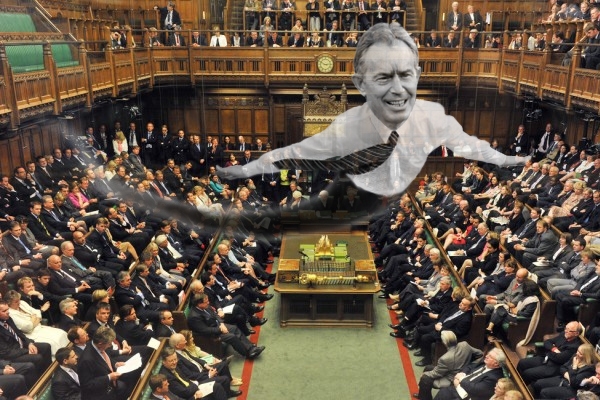Tony Blair would have had less of a presence in today’s Commons debate on Syria if he’d actually turned up to it. The former Prime Minister was threaded throughout the speeches, and no more so than in David Cameron’s address to MPs. Cameron was keen to emphasise at every opportunity the difference between the government’s response to the current situation and the Blair government’s handling of the Iraq war. He was quick to refer to it, saying ‘I am deeply mindful of the lessons of previous conflicts’, and later said that Iraq ‘poisoned the well’ of public trust on military intervention. Though as James pointed out as the debate was underway, this would have been more stinging for Miliband had the Labour leader had the same close ties to the Iraq conflict as other Labourites, including his own brother.
It was also interesting to note the care that the Prime Minister took to praise MPs from all sides who intervened to ask questions. His repeated descriptions of questions as ‘important’ and ‘serious’ suggested that he wanted to appear considered and open to cross-examining, rather than gung-ho for intervention.
The Prime Minister is always good on the serious occasions, and he offered an effective outline of his case for intervention. He argued that ‘it’s also about chemical weapons, it’s about a treaty the whole world agreed to almost 100 years ago… the question before us is “is Britain a country that wants to uphold that international taboo against chemical weapons?”‘ and he insisted that ‘from all the evidence we have… that is enough to conclude that the regime is responsible and should be held accountable’.
And he made clear the risk of not responding was that Assad could attack his own people again. He said:
‘Interfering in another country’s affairs should not be undertaken except in the most exceptional circumstances… by any standards this is a humanitarian catastrophe and if there are no consequences there is nothing to stop Assad and others doing it again and again.’
But where he failed to satisfy the concerns of his own backbenchers was on what would happen if the action agreed doesn’t work. It’s a question that former soldier Dan Byles has eloquently posed in a blog for this site, and even though tonight’s vote will probably go Cameron’s way, that question will remain hanging until the really big vote on whether to approve intervention, whenever that comes.
You can listen to David Cameron’s speech, and the other key comments by MPs for and against intervention in our live audio blog.







Comments